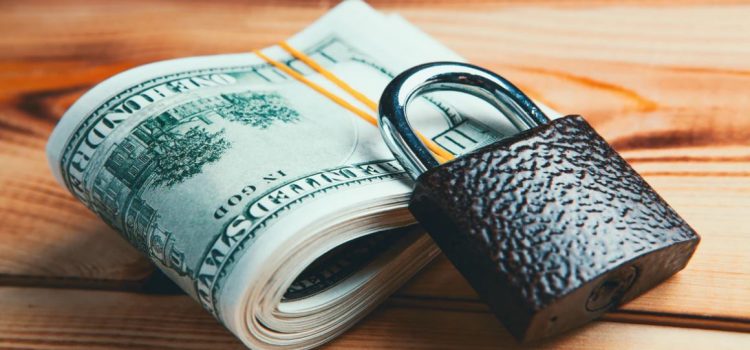

This article is an excerpt from the Shortform book guide to "The Psychology of Money" by Morgan Housel. Shortform has the world's best summaries and analyses of books you should be reading.
Like this article? Sign up for a free trial here .
Do you have an emergency savings fund? Why is it important to plan for financial emergencies?
Many people have the mindset of “it couldn’t happen to me.” But the truth is, sudden financial emergencies can happen to literally anybody—they’re unpredictable in their nature. That’s why it’s so important to start saving for emergencies, so you’re prepared for things to go wrong.
Here’s why you should plan for things to go wrong.
Plan for Things to Go Wrong
In his book The Psychology of Money, Morgan Housel shares an essential element of any financial strategy: Plan for things to go wrong and save for emergencies.
Housel warns that people are often too optimistic with their finances, which leads them to put too much of their wealth at risk at any one time on a strategy that can be taken down by any one factor of bad luck.
(Shortform note: Why do people act too optimistically with their finances? In the blog post that he based this book on, Housel suggests that it’s partly because people are uncomfortable with being wrong—so they grow convinced that their idea of the future is right.)
As Housel notes, bad luck is an inevitable part of life. But unknown risks are, by definition, unknown, so we can’t predict them. Therefore, he advises that you plan for things to go wrong by following this advice:
Never put your entire fortune at risk, and instead risk only a small portion at a time. Keep enough invested in safe investments so that you can cover any losses incurred by your riskier investments.
| Keeping Your Fortune Safe: The Extreme Version In Antifragile, Taleb argues that you must embrace antifragility—things that get stronger instead of weaker under stress—to thrive in our modern world. He warns against putting your entire fortune at risk, but he emphasizes the extreme options over the average ones. He recommends investing with the barbell model: Keep one end extremely safe (like by having 90% of your savings in the bank), and one end high-risk and high-reward (like by investing in extremely volatile stocks that might pay off massively). This way, you could earn a lot of money but you can only ever 10% of your money. But unlike Housel, Taleb urges you to avoid the middle-of-the-road strategies: It’s by protecting yourself from disaster and then chasing the greatest gains with your leftover money that you ensure that chance will, on average, work in your favor. |
Don’t create strategies that hinge on one single factor because if that factor goes wrong, the entire strategy fails. Instead, have backup systems in place that protect you when a particular factor fails. For example, don’t rely on a single source of income to meet all your spending needs. Keep a backup savings account so that you can protect yourself even if you lose all your income.
(Shortform note: A single factor that many of us base our financial lives on is our ability to keep working. However, you could suffer a medical condition that prevents you from working—and while health insurance will pay your medical bills, you’re still responsible for your everyday expenses. That’s why financial experts recommend not just having savings and health insurance but also disability insurance.)
When planning for retirement, save one-third more than you think you need to. This way, you’ll have enough saved even if your future returns are one-third less than you expect.
(Shortform note: Another reason you might want to save more than you think you need for retirement is that, in emergency situations, you can use your retirement savings. In I Will Teach You to Be Rich, financial expert Ramit Sethi suggests that if you end up with unexpected expenses and your only option is to use your credit card, you should consider withdrawing money from your retirement account instead. While this will incur losses on your retirement earnings, you’ll still save more than if you increase your existing credit card balance—and the exorbitant interest rates that come with it.)
How Planning for Setbacks Protects You
Housel explains that planning for inevitable setbacks protects you in several ways.
It reduces the need for your predictions to be accurate. If you aren’t correct in how the stock market is going to go, for example, you won’t lose everything if you’ve only risked some of your wealth on it. Your predictions don’t matter as much. (Shortform note: In this way, planning for setbacks reflects your humility: If you’re convinced you can’t fail, you won’t bother to plan for failure. So, increasing your humility may also increase the likelihood that you’ll plan for error. To increase your humility, consider strategies like imagining times when you were humble prior to creating your financial plan.)
It allows you to endure losses long enough to be positioned to take advantage of opportunities when they arise. When you can weather occasional losses, you’ll still be in the game to reap the occasional windfall. Windfalls are infrequent but they can be the source of significant earnings if you’re able to grab them. This applies not only to the stock market but also to other types of investments. For example, if you’re running a company, you need to ensure it can get through times of no revenue so that you can be positioned to increase your business when the opportunity arises. Another example is in the housing market: If a downturn wipes your savings out, you won’t be able to take advantage of low housing prices, which could possibly lead to high future returns.
(Shortform note: Housel’s warning about being unable to take advantage of the housing market implies that he considers buying a house to be an investment. Some financial experts warn against this idea, stating that you should consider housing a consumption good, not an investment. This is because houses have value based on the economic opportunities of where they are—so if you live in a house and your local economic opportunities suddenly decline, you now have both fewer economic opportunities and a house that’s declined in value and may be a liability instead of an asset.)
It reduces the danger that you’ll make poor choices because of emotions. If you know most of your fortune is protected, you won’t overreact to bad results that affect some of your fortune. (Shortform note: Planning for setbacks may also protect your finances from the broader impact your emotions can have on your finances. For example, one study found that if you make financial decisions while sad, you’re more likely to prioritize short-term over long-term gains. But if you have, for example, a bigger savings account, you’ll be better able to handle the potential financial consequences of being sad for a long time.)

———End of Preview———
Like what you just read? Read the rest of the world's best book summary and analysis of Morgan Housel's "The Psychology of Money" at Shortform .
Here's what you'll find in our full The Psychology of Money summary :
- Why the key to financial success lies in understanding human behavior
- How to make better financial decisions
- How chance plays a bigger role in our financial lives than we think






